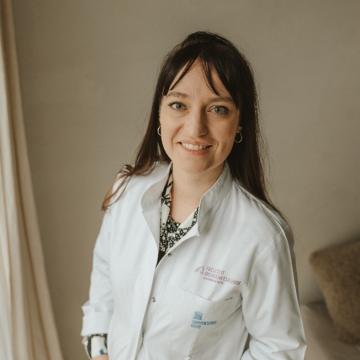dr. Tess Goessens (PhD)

Postdoctoral researcher - Centre of Excellence in Mycotoxicology and Public Health – Faculty of Pharmaceutical Sciences, UGent
Principal investigator: prof. Marthe De Boevre (PhD)
Research focus
Endocrine disrupting compound (EDC) contamination of drinking water has been inevitable since not all EDCs can be eliminated from wastewater, and in-house piping & filter material, as well as packaging (bottled waters) poses additional risks. A full-comprehensive study covering major EDCs (e.g. hormones, industrial chemicals, pesticides), and taking into account cancer risk from a holistic point of view, is non-existent. Currently, international and national drinking water regulation lacks the inclusion of most EDCs, even more for bottled water. EDC exposure is linked to higher cancer risk by disrupting vital hormonal pathways that maintain cellular balance. Scientific evidence underscores the need to minimize contact with these contaminants to reduce the risk of various cancers. The research project AquaGlance is the first to investigate EDCs in bottled & tap drinking water and their exposure-related cancer risks in a Belgian population (the GEZONDHEIDSMONITOR®), taking into account different geospatial-hydraulic & socio-economic environments, to identify hotspots and vulnerable population groups.
The GEZONDHEIDSMONITOR® is a prospective population study aiming to map the human exposome, and recruiting 20,000 citizens for 20 years. Selected regions were based on Flanders’ representativeness, i.e. data are easily extrapolatable to other regions in Belgium. As a substudy, this research project aims to explore the exposure & cancer risk to EDCs by collecting samples of drinking water, both tap water from 300 households as well as bottled water collected from local supermarkets and drink distributors. To account for different water supply areas related to different tap water suppliers (AquaDuin, AGSO, Water-Link, Farys, Pidpa & de Watergroep), 50 additional samples will be taken, i.e. 10 per water supply area excluding the area already sampled in Ghent. To distuingish for in-home contamination, additional samples will be taken at the water meter (i.e. start of the in-home water distribution) at highly contaminated sites. Comprehensive questionnaires will provide information about water consumption habits and to include vulnerable groups various recruitment strategies will be employed such as translation into 9 languages & involvement of stakeholders from non-profit organizations. Water will be analyzed by (un)targeted high resolution mass spectrometry, having the ability to target confirmed EDCs, as well as perform a retrospective analysis of EDCs under investigation to cover the full-width of EDCs. Most importantly, cancer risk will be assessed using the Risk Quotient method based upon the daily EDC intake, by comparing its exposure levels with established toxicity benchmarks. Relevant risks will be pinpointed in a 3-phase sensibilization and mitigation campaigns. As such, efforts are made to steer current water packaging & treatment technologies focusing on relevant EDCs, inform households about potential risks, and provide practical guidance on how to mitigate exposure in daily life. Lastly, advocating for regulatory changes to reduce EDC presence in drinking water is part of the strategy (translation of scientific results into policy, e.g. funding for water treatment, piping renovation, etc.).
Through this collaborative effort, the goal is to sensitize stakeholders from source to tap and work towards practical solutions to minimize the impact of EDCs on cancer development. The results will guide further research on exposure's impact on long-term health, including cancer, throughout the population’s lifetime. This supports continuous campaign improvement based on feedback and emerging insights.
Biography
- Master in Veterinary Sciences, 2015, Ghent University
- Top Student Certificate - 2012
- Clinical Internist Small Animal Medicine, 2016, Ghent University
- Doctor in Veterinary Sciences, 2021, Ghent University
(Screening of chemicals in fresh water ecosystems and organ-specific bioaccumulation and elimination of fungicides in the Japanese red-bellied newt) - Scientific Writer, 2021, TRIUM Clinical Consulting, Belgium
- Postdoctoral assistant (2022-2023), Ghent University: coordinator of the ERC-funded HUMYCO project within the Centre of Excellence in Mycotoxicology and Public Health
- Postdoctoral researcher (2024-to date), Ghent University: FWO post-doctoral mandate working on AquaGlance: unravelling endocrine disrupting compounds in drinking water
Contact & links
- Lab address: Campus Heymans, Faculty of Pharmaceutical Sciences, Ottergemsesteenweg 460, 9000, Gent
- MyTox
- MyToxSouth
- Food2Know
- Biblio UGent
- ORCID
- ERC HUMYCO
- Onderzoek naar hormoon verstorende stoffen in drinkwater
- Tess Goessens is interested to receive invitations for presentations or talks